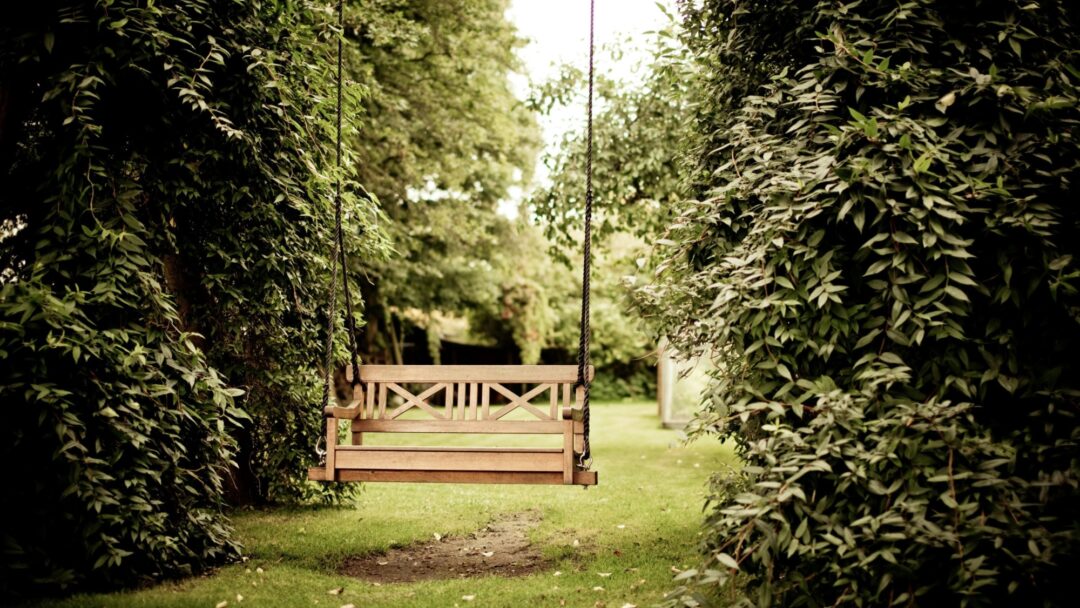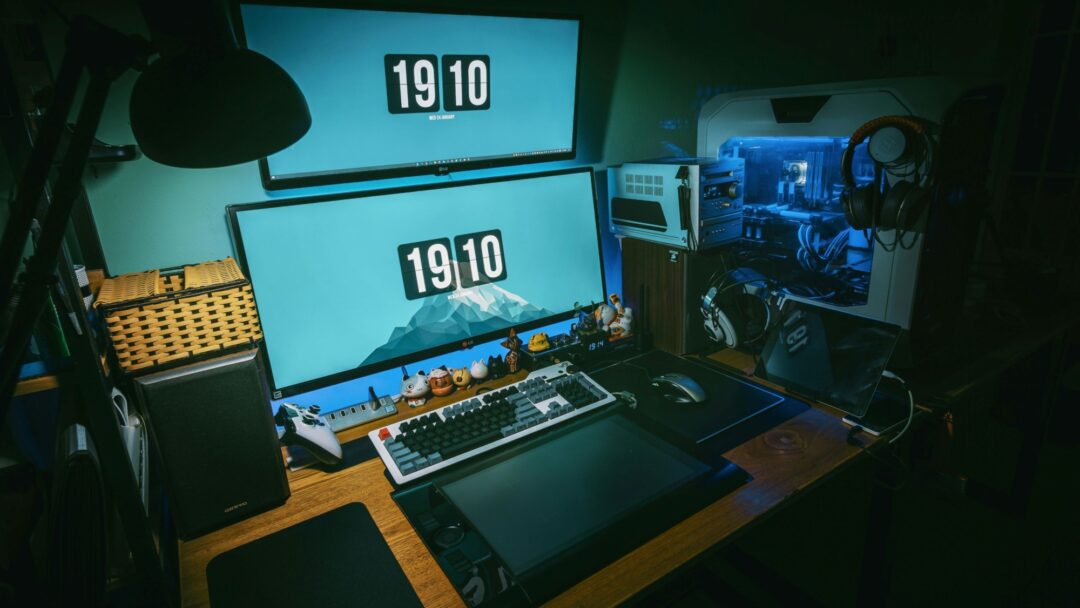Audio
Dale Williams - Stuttering Awareness Day
Ablequest by
2RPH3 seasons
18 October 2024
14 mins
An expert with lived experience corrects some widespread misconceptions about stuttering.

This series of 15 minute programs from Radio 2RPH Sydney examines developments in assistive technology and initiatives for people living with a wide range of disabilities.
Presented by Barbara Sullivan, Marni Roper and Elaine Wziontek.
In this episode: October 22 is International Stuttering Awareness Day. Professor Dale Williams, Professor and Chair Department of Communication Sciences at Florida Atlantic University (pictured on this page) says there are many misconceptions about stuttering. Elaine Wziontek spoke to him via Zoom at his home in Florida.
Speaker 1 00:04
With information on the latest developments in assistive technology and initiatives, from the studios of 2RPH in Sydney, RPH Australia brings you AbleQuest.
For most of us, when we go to speak, we have a thought, take a breath and speak fluently. For those who stutter, it's not so simple. Words get tangled, consonants repeated, and the harder they try, the more difficult it becomes. It's also difficult for the listener, and the natural inclination is to fill the gap. But the best advice, according to today's guest, is just shut up and listen.
October 22 is International Stuttering Awareness Day, so it's appropriate and timely that today's guest is a specialist in fluency disorders, Professor Dale Williams, Professor and Chair of the Department of Communication Sciences at Florida Atlantic University in the US. He's an expert in stuttering and is a stutterer himself who managed to overcome his vocal challenges. He's authored many works on stuttering, including academic, comedy, and children's books. Elaine Wziontek spoke to Professor Williams via Zoom at his home in Florida.
Speaker 2 01:24
Today, we're talking to Professor Dale Williams, who's Professor and Chair, Department of Communication Sciences at Florida, Atlantic University. And he's an expert in stuttering. And we're looking at promoting International Stuttering Awareness Day, October the 22nd. So Professor Dale, can we start just briefly? Do we know what causes stuttering and why it often goes away by the time a child goes to school?
Speaker 3 01:55
First of all, thank you for having me on your show. As for stuttering, the short answer to your question is - nobody knows. The longer answer is, there seem to be multiple factors at play. At its core, it has to be a neurological difference of some sort. Small children have brains that are plastic, that is they're still forming. They can recover from certain conditions, certain differences. They just operate a little bit differently. And I think that's why if you see spontaneous recovery, it's very likely to happen in the preschool years and probably within the first year post onset.
Speaker 2 02:48
So how important is early intervention? Do you know if a child's going to grow out of it or do you need early intervention if they're still stuttering when they're four?
Speaker 3 02:56
Early intervention is crucial. There's a lot of research being done on spontaneous recovery, but there's not really any sort of rule of thumb where it's like, OK, if the kid scores this on this test, then he has to be evaluated or he's going to recover, or there's nothing that definitive. What I would say to parents is, if you suspect that your child is stuttering, you're probably right. Listeners in general, certainly including parents, are very good at hearing the presence of stuttering. They may not be able to define it or identify every instance, but if a kid is stuttering, they're going to be able to know that something is different with the kid's speech.
They can probably wait a few months post onset before an evaluation to see if it's just one of those things that's going to go away quickly. I don't think I would wait much longer than that, and I always tell parents, you can come back in six weeks, eight weeks, 10 weeks, whatever it is, unless the child's speech is really starting to drive you crazy. In that case, let's get them evaluated.
Speaker 2 04:20
So I understand that you were a stutterer as a child - what was that like?
Speaker 3 04:24
Yeah, actually, I still am. As a child, I think the usual progression, it's a difficult thing in school. Then you hit the middle school years, around age 10 or so, 10 to 13, and you try to hide it. Every middle schooler wants to be in the middle of the centre row and go unnoticed. You don't want to stand out to something that you probably perceive as a weakness, and so you do everything you can to hide it, which usually comes back to haunt you later on. Stuttering in class, I can remember peers laughing at me. I can remember teachers laughing. Unfortunately, it is part of the deal, growing up with a stutter.
Speaker 2 05:23
Are there some misconceptions with stuttering? Are there some dumb questions that people ask or suggest?
Speaker 3 05:31
Oh my, yes. Yes, there are many questions and pieces of advice. Someone begins to stutter, you know, they'll get a Slow down, very common one, Take a deep breath then say it - you know, obviously anybody who stutters has thought of that stuff first, it doesn't work. I guess it's an area where nobody really thinks our experts, everyone's opinion is equal. Probably my favorite one: Just think about what you want to say first and then say it. Like we're just out there saying random words until this guy came along and said, No, prepare what you're going to say first.
People will tell us that they stutter too sometimes, they don't. Do children sometimes stutter for attention? No, that's not the kind of attention any kid really wants. It's not that uncommon for people to stutter on their names. And so I think everyone who stutters has, you know, as a struggle introducing themselves - they've heard, Did you forget your name? Yeah. And then sometimes if you're not stuttering much, people will point that out to you.
You know, you've hardly stuttered at all today. Like we should be glad they're meeting their high standards.
Speaker 2 06:57
This sounds a bit patronising in a way, doesn't it?
Speaker 3 06:59
It feels that way when you're on the other end of it as well.
Speaker 2 07:03
So what can family and friends do to help?
Speaker 3 07:07
One of the quotes that's been attributed to me numerous times from the movie When I Stutter is, just shut up and listen. And that really is good advice for any listeners, including parents, including friends, including siblings. Don't try to give advice. Don't interrupt. Don't try to finish your loved one's sentences. Don't make gestures to try to make him hurry. The best thing you can do for him is let him talk. And I say him because it's mostly a male condition. It's to let him finish what he has to say. Let him know that the content of his speech is important to you, not just the way he's saying it.
Speaker 2 08:03
Mm hmm. Sounds like good advice whether you're stutter or not. Well, we should all remember to to shut up and listen. There you go. You mentioned a film, or was it a documentary - When I Stutter? Can you tell us a little bit about that?
Speaker 3 08:18
Yeah, it's a documentary. It was written, directed, and produced by John Gomez and it's been entered in film festivals around the world and it's taken home a lot of awards. It follows probably about 20 different people who stutter and covers topics from treatment, to dating, to starting families, to school. It's a really nice piece of work. It's very human and I think it really shows the extent of stuttering. I think a lot of people see stuttering as, OK, you have one to one and a half second breaks of speech. What's the big deal? There's a lot more to it than that, and I think you come away from that movie with a much greater understanding of it.
Speaker 2 09:20
Great. And you've also written books, and I can see we're doing this interview by Zoom, and I can see a very colorful backdrop behind you. Can you tell us something about one of the books that you've written?
Speaker 3 09:32
Yeah. Well, this backdrop is from a children's book. It's called They Can't Be Seen Who Couldn't Squawk. The artwork was actually done by a colleague of mine at Florida Atlantic. Her name is Susanna Brown, and she's an amazing artist. And it was actually published by The Brainery, which is an Australian publisher. And I've written three books for one of them as a textbook, one of them is a workbook for adults, and then the children's book. And then I've written three other books on stuttering. And all of them, if anyone wants to check them out, all of them are available at hearsayresources.com.
Speaker 2 10:19
hear say resources dot com - and the name of the children's book again about squawking, about birds, was it?
Speaker 3 10:25
It's called They Can't Be Seen Who Couldn't Squawk.
Speaker 2 10:28
They Can't Be Seen Who Couldn't Squawk.
Speaker 3 10:31
Yeah, it's for children - at preschool, maybe early school age, and it's all written in rhyme, and it goes through the entirety of the early stuttering experience. Parents identifying it, getting bad advice from other people, the kids starting school, getting teased, finally finding some people who are like him and learning to accept that he's a little different from his peers.
Speaker 2 11:03
So Professor Dale Williams, we can't end the interview without just including something about research, since you're at university. Does the latest research suggest that we can cure a stuttering or do we manage it?
Speaker 3 11:19
Manage it would be the quick answer to that one. There's not any sort of universal cure. There's a lot of research on treatments that are designed to have people talk stutter-free. That's only one kind of treatment, by the way. There's research on pharmaceutical agents that could help, electronic devices that could help, but there isn't anything universal. They haven't found anything where they can say, OK, research has shown if you do this, you're not going to stutter anymore.
That's one of the reasons why there's such an emphasis on acceptance, on just you can't sit around and wait for a cure. You've got things to say. That's the bottom line to all treatment, in my opinion, is say what you want to say. Even if you sometimes stutter, you've got things to say, say them.
Speaker 2 12:29
That sounds terrific. Well, you can be a success, can't you, if you're a stutterer. I mean, there are very famous people. I can think of, I think Winston Churchill and Joe Biden. And there was an actor who died recently, as at James Earl Jones. Apparently he was a stutterer.
Speaker 3 12:44
Yes. And yeah, there have been athletes who stutter. You mentioned politicians, actors, public speakers. So, yeah, a lot of walks of life where people heavily rely on their voices. And, you know, they stutter, and they just do what they want to do.
Speaker 2 13:11
Well, thank you very much for your time today. And I think if people want to get those books and find out more, thebrainery.com is one resource in Australia.
Speaker 3 13:21
Yeah, yeah, the Brainery and also Hearsay, available on both.
Speaker 2 13:27
Thank you. So that was Professor Dale Williams, Professor and Chair, Department of Communication Sciences from Florida Atlantic University, telling us about stuttering and that we should all be aware of International Stuttering Awareness Day, October 22. Thank you very much.
Speaker 3 13:47
Thank you, Elaine.
Speaker 1 13:52
You have just been listening to AbleQuest, a program that looks at developments in assistive technology and initiatives. From Elaine Wziontek and Barbara Sullivan, thank you for listening, and goodbye till next program.
Continue listening

Blind Sports Australia CEO Matt Clayton speaks about its work with blind and vision impaired athletes across 21 sports.
Matt Clayton - Blind Sports Australia
Ablequest by 2RPH
5/5/2023
•13 mins
Audio

Vivid, Sydney's celebration of creativity, seen from a disability access focus by its director.
Gill Minervini - Vivid
Ablequest by 2RPH
19/5/2023
•14 mins
Audio

This program discusses dance movement therapy and how it works - featuring Cecilia King of the Dance Therapy Association.
Cecilia King - Dance Therapy
Ablequest by 2RPH
14 mins
Audio

What are the challenges of providing audio description on Oz TV? Hear Lauren Henley, Aust Federation of Disability Organisations.
Lauren Henley - Audio Description
Ablequest by 2RPH
16/6/2023
•14 mins
Audio

In Part 1 of a 2RPH interview, assistive tech expert David Woodbridge explores latest innovations to make everyday life easier.
David Woodbridge - Tech Update Part 1
Ablequest by 2RPH
30/6/2023
•14 mins
Audio

Features Robert Duff-Silsby of Luddi, Perth company developing assistive devices for all people and bodies.
Robert Duff-Silsby - Sexual Wellbeing
Ablequest by 2RPH
13 mins
Audio

In Part 2 of this conversation with 2RPH's Ablequest, expert David Woodbridge reviews latest assistive technologies.
David Woodbridge - Tech Update Part 2
Ablequest by 2RPH
28/7/2023
•14 mins
Audio

Matt Clayton of Blind Sports Australia and the Oz team's Chef de Mission, discusses the forthcoming World Blind Games in the UK.
Matt Clayton - World Blind Games
Ablequest by 2RPH
11/8/2023
•13 mins
Audio

Prof Kim Marriott of the Monash Assistive Technology and Society Centre, talks about the purpose and work of the Centre.
Kim Marriott - Monash Assistive Technology and Society Centre
Ablequest by 2RPH
25/8/2023
•13 mins
Audio

Ablequest features an interview with Serena Ovens, new CEO of Assistive Technology Supplies Australia or "ATSA".
Serena Ovens - Assistive Technology Supplies Australia
Ablequest by 2RPH
14 mins
Audio

Part 1 of an interview on the voice-activated app, Bindi Maps.
Anna Wright - Bindi Maps (Part 1)
Ablequest by 2RPH
14 mins
Audio

This is Part 2 of an interview with Dr Anna Wright, explaining how Bindi Maps works.
Anna Wright - Bindi Maps (Part 2)
Ablequest by 2RPH
14 mins
Audio

Artist Ebony Wightman of disability-led We Are Studios talks about art and challenge.
Ebony Wightman - We Are Studios
Ablequest by 2RPH
20/10/2023
•13 mins
Audio

Prof. Leeanne Carey discusses the SENSe program, her team's world-first therapy to help stroke survivors.
Leeanne Carey - SENSe Therapy
Ablequest by 2RPH
2/11/2023
•13 mins
Audio

Youthworks Accessibility Minister Bec Baines talks of making church accessible to young people with disabilities.
Bec Baines - Youth and Worship
Ablequest by 2RPH
16/11/2023
•14 mins
Audio

Nikki Hind, Australia's first blind fashion designer, discusses her work.
Nikki Hind: Blind Grit
Ablequest by 2RPH
1 December 2023
•14 mins
Audio

Dr Dimity Williams, family GP, recommends spending more time in nature - and a "green hour" each day.
Green Hour: Dr Dimity Williams
Ablequest by 2RPH
5 December 2023
•14 mins
Audio

Imagine sitting in a wheelchair for hours, being unable to move your fingers or arm to do simple things like pick up a glass.
Konstanze Hager - Bateo
Ablequest by 2RPH
Konstanze Hager - Bateo
•14 mins
Audio

Action Audio is a new language being created to transcend sport.
Machar Reid - Action Audio
Ablequest by 2RPH
Machar Reid - Action Audio
•14 mins
Audio

What a difference one person with experience, passion and energy can make to many lives.
Julie Ross-Edwards - Head High
Ablequest by 2RPH
Julie Ross-Edwards - Head High
•14 mins
Audio

Driver educator outlines what's needed for a person with disability to get a driver's licence.
Ronak Shah: on-road driving education
Ablequest by 2RPH
12 January 2024
•14 mins
Audio

Vision Australia's Christo Sarantakis talks of his life, blindness and assistive tech changes.
Christo Sarantakis of Vision Australia
Ablequest by 2RPH
26 January 2024
•14 mins
Audio

Introducing Australia's first pictureless feature film, TOUCH, showing in Sydney.
Majella Knobel: "Touch" - open air movie
Ablequest by 2RPH
9 February 2024
•14 mins
Audio

An expert discusses the use of horticultural therapy for people with disabilities.
Steven Wells: horticultural therapy
Ablequest by 2RPH
23 February 2024
•14 mins
Audio

Features articles on latest blind-assistive tech including a new bus app and smart ear buds.
Assistive tech news catchup
Ablequest by 2RPH
8 March 2024
•14 mins
Audio

Features an innovative hospitality industry training program for people with disabilities.
Saraya O'Connell - Hotel Etico Independence Program
Ablequest by 2RPH
22 March 2024
•14 mins
Audio

Guests discuss the Obi robotic dining assistant for people with upper arm disabilities.
Hugh Kingley and Rachel Dekkar: Obi
Ablequest by 2RPH
19 April 2024
•14 mins
Audio

A spy-themed computer program tackles the mystery of social encounters - outlined by its company's CEO.
Kathleen Davey - Social Science Translated
Ablequest by 2RPH
3 May 2024
•14 mins
Audio

A Sydney organisation delivers creative arts and life skills to people with disabilities.
ChoppA Green - Studio Artes
Ablequest by 2RPH
17 May 2024
•14 mins
Audio

An award-winning Central Coast NSW disability service shares its successful strategies.
Lonestar Makoni - Breaking Barriers Disability Services
Ablequest by 2RPH
31 May 2024
•14 mins
Audio

Part 1 of a conversation with an Australian neuroscience research pioneer about benefits of music in brain injury recovery.
Professor Sarah Wilson (part 1)
Ablequest by 2RPH
14 June 2024
•14 mins
Audio

Part 2 of a conversation with a leading neuroscientist of benefits of music in brain injury recovery.
Professor Sarah Wilson (part 2)
Ablequest by 2RPH
28 June 2024
•14 mins
Audio

A CEO talks about his company's award-winning assistive physical therapy device.
Justin Keenan - LusioMate
Ablequest by 2RPH
12 July 2024
•14 mins
Audio

Information about a program teaching good cyber-security practices to make daily life safer.
Jess Wilson: Be Connected
Ablequest by 2RPH
26 July 2024
•14 mins
Audio

A veteran print disability broadcaster with macular degeneration shares her experiences.
Teresa Plane - 2RPH
Ablequest by 2RPH
9 August 2024
•14 mins
Audio

The founder of a blind-assistive technology company shares latest developments.
Peter Ford - Control Bionics (part 1)
Ablequest by 2RPH
6 September 2024
•14 mins
Audio

Part 2 of an interview with the head of an innovative blind-assistive technology company.
Peter Ford - Control Bionics (part 2)
Ablequest by 2RPH
20 September 2024
•13 mins
Audio

Looks at a project to better inform refugee and migrant women on AI.
Good Things - Jess Wilson
Ablequest by 2RPH
4 October 2024
•14 mins
Audio

An expert with lived experience corrects some widespread misconceptions about stuttering.
Dale Williams - Stuttering Awareness Day
Ablequest by 2RPH
18 October 2024
•14 mins
Audio

An inventor discusses his an innovative cane tip to help people with blindness or low vision.
Peter Rickards - Sensaball
Ablequest by 2RPH
15 November 2024
•13 mins
Audio

Part 1 of an interview with an Australian expert on low-vision-assistive technology, on AI and other developments.
David Woodbridge (part 1)
Ablequest by 2RPH
29/11/2024
•14 mins
Audio

Conclusion of an interview with a leading Australian expert on blind-assistive technology.
David Woodbridge (part 2)
Ablequest by 2RPH
13 December 2024
•14 mins
Audio

Looks at the leading stroke treatment work of the Royal Rehabilitation Hospital, Ryde NSW.
Jason Redhead and Graham Cooper of Royal Rehab Ryde
Ablequest by 2RPH
10 January 2025
•14 mins
Audio

An innovative social media platform aims to address isolation and loneliness in the disability community.
Steve Bear - Alvie
Ablequest by 2RPH
7 February 2025
•12 mins
Audio

Australia's largest provider of Auslan sign services outlines its important work.
Brett Casey - Deaf Connect
Ablequest by 2RPH
21 February 2025
•14 mins
Audio

Looks at an Australian organisation's work at helping men seek help and build self-awareness.
Tommy Herschell - Find Ya Feet
Ablequest by 2RPH
7 March 2025
•14 mins
Audio

A speech pathoplogist discusses her work with young people's complex communication needs.
Denise West - Scope
Ablequest by 2RPH
21 March 2025
•14 mins
Audio

A vision-impaired disability rights advocate talks of her work and learning podcast skills.
Freya Wolf
Ablequest by 2RPH
4 April 2025
•14 mins
Audio

A leading Australian eye researcher talks of his team's work in creating new hope for people with retinal damage.
Raymond Wong - Centre for Eye Research Australia
Ablequest by 2RPH
18 April 2025
•14 mins
Audio

A wheelchair-using business owner, facilitator and car rally driver shares experiences and insights.
Mel Harrison - Sitting Low, Reaching High
Ablequest by 2RPH
2 May 2025
•13 mins
Audio

Disability Pride Month in July promotes awareness about people with disability and also celebrates individuals with disability.
Hannah Solomons - Sydney Disability Pride
Ablequest by 2RPH
Hannah Solomons - Sydney Disability Pride
•14 mins
Audio

Deb Roach is a three-time pole dancing world champion yet she has only one arm.
Deb Roach
Ablequest by 2RPH
Deb Roach
•13 mins
Audio

Being in nature is good for you whether it is being in the garden or walking along the beach.
Kayte Kitchen - Admirari Nature Therapy
Ablequest by 2RPH
Kayte Kitchen - Admirari Nature Therapy
•14 mins
Audio

Music can evoke emotions that bring back memories and the same is true for people living with dementia.
Zara Thompson - Music Therapy
Ablequest by 2RPH
Zara Thompson - Music Therapy
•14 mins
Audio

Laura Boccanfuso is founder and CEO of Van Robotics, a social robotics company based in South Carolina in the United States.
Laura Boccanfuso - Van Robotics
Ablequest by 2RPH
Laura Boccanfuso - Van Robotics
•14 mins
Audio

Two years ago Maggie O'Connell, in her mid 20's never had a full time job.
Maggie O'Connell - AFP
Ablequest by 2RPH
Maggie O'Connell - AFP
•14 mins
Audio

Julie Ross-Edwards, founder of Head High Disability Services, returns to Ablequest to speak more about Head High's philosophy and special approach.
Head High (Update)
Ablequest by 2RPH
Head High (Update)
•13 mins
Audio

David Woodbridge, an expert in assistive technology for people with no or low vision, is a regular guest on Ablequest.
David Woodbridge
Ablequest by 2RPH
David Woodbridge
•14 mins
Audio

Pete Horsley is the Founder of Remarkable, a global start up and initiative of the Cerebral Palsy Alliance.
Pete Horsley - Remarkable Disability Tech Summit
Ablequest by 2RPH
Pete Horsley - Remarkable Disability Tech Summit
•14 mins
Audio